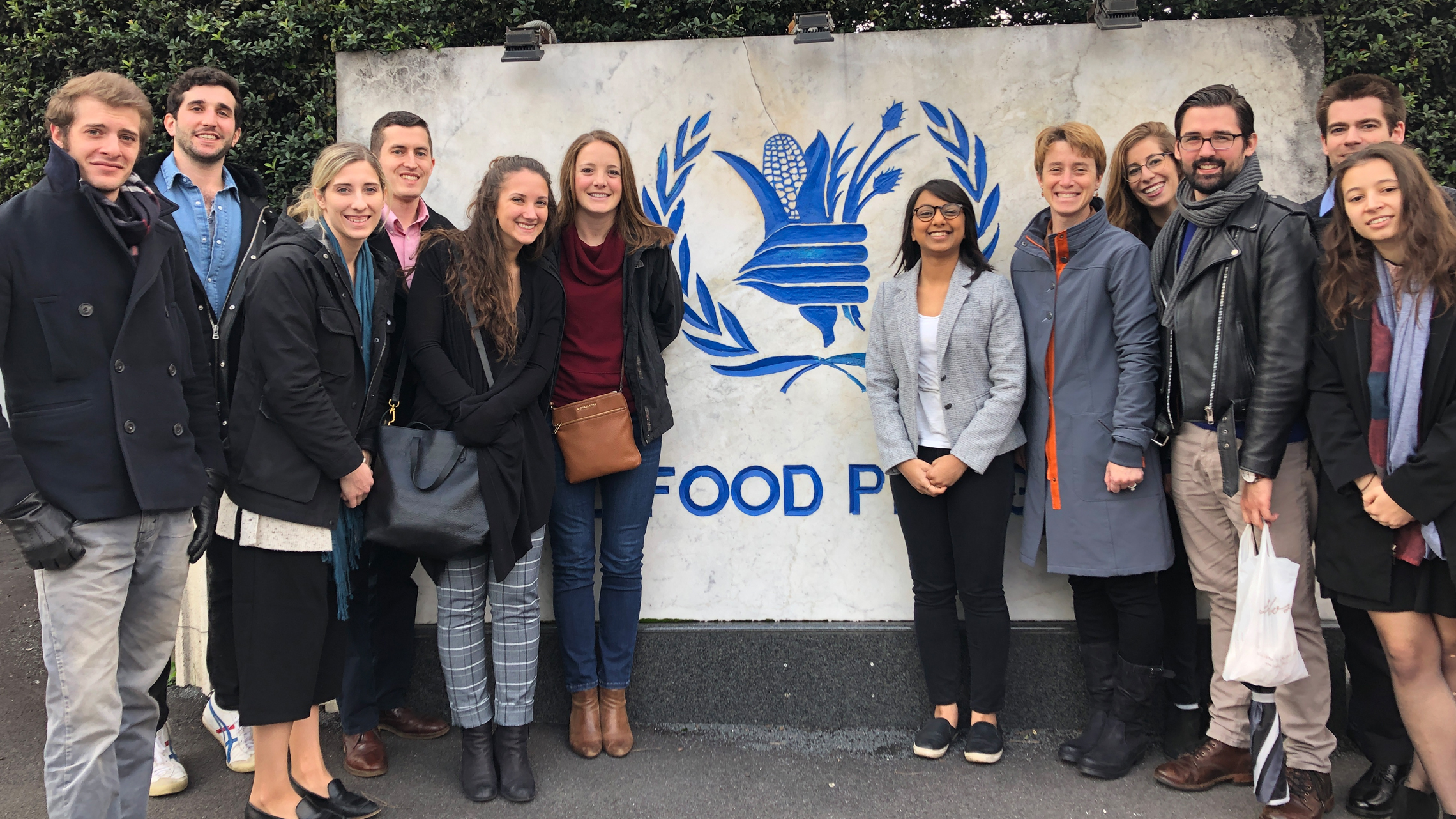The International Humanitarian Law Clinic works directly with international tribunals, militaries, non-government organizations, and other entities to enhance protections during wartime and ensure accountability for war crimes, genocide, and crimes against humanity.

Under the instruction and supervision of clinic director Clinical Professor of Law Laurie Blank, IHL Clinic students work on the front lines—researching ways to hold perpetrators accountable; working on protection of civilians, emerging technologies, detention, targeting and other issues in contemporary conflict; and partnering with the US military on strategies for enhanced education and training in the law of armed conflict. These students learn more than the practice of law—they are working in the United States and abroad to minimize the devastating consequences of war for civilians, communities, and soldiers.
Our Work
Promoting the Law of War: Armed conflict in today’s society poses significant challenges for effective implementation of international humanitarian law because of complex military operations and counterterrorism campaigns. The clinic engages with militaries and civilians to address difficult legal issues, including the application of international humanitarian law in the cyber and space domains, the impact of artificial intelligence and other emerging technologies on military operations, the challenges of protecting civilians and critical civilian infrastructure in urban operations and large-scale combat operations, and other enduring questions.
Enforcement and Accountability: The IHL Clinic provides direct assistance to organizations working to protect civilians in conflict areas, prevent atrocities, and hold perpetrators of atrocities accountable. Students work in real time with international criminal tribunals and non-governmental organizations, helping to prosecute or defend individuals accused of war crimes, raise public awareness of atrocities, and ensure the protection of civilians and combatants in conflict regions around the world.
Training and Education: Effective, comprehensive training and education is critical for the protection of civilians and soldiers and for effective mission accomplishment. In addition to working directly with the US military on education and training in the law of armed conflict, the IHL Clinic works with the International Committee of the Red Cross, the American Red Cross, and various non-governmental organizations on international humanitarian law dissemination and education for civilian communities, militaries, and armed groups. The IHL Clinic has also partnered with the US Institute of Peace to research and analyze military training programs in countries around the world and works with the International Committee of the Red Cross to develop supplements for faculty teaching international humanitarian law.
IHL in Action: The IHL Clinic was a lead participant in the ICRC’s pathbreaking IHL in Action: Respect for Law on the Battlefield project. IHL in Action is a database of real case-studies documenting compliance with international humanitarian law (IHL) in modern warfare, designed to encourage the reporting, collection and promotion of instances of respect for IHL. In partnership with three other IHL Clinics, the Emory IHL Clinic gathered examples of respect for international humanitarian law in current and past conflicts around the world. The project seeks to encourage practice-oriented thinking on the ongoing relevance of IHL in contemporary conflicts and to identify elements, both legal and non-legal, that foster respect for the rules of war in armed conflicts.
IHL Clinic International Exchange Program:
From 2015-2019, the IHL Clinic partnered with the Leiden University International Humanitarian Law Clinic, the Reichman University International Criminal and International Humanitarian Law Clinic, and the Roma Tré International Humanitarian Law Clinic in a dynamic and ground-breaking international exchange program. Students and faculty from the four clinics participated in rotating annual visits to share information, engage directly with local experts and practitioners, and build networks of international lawyers for the future.
The IHL Clinic looks forward to building additional networks and exchange programs with established and emerging IHL clinics at universities around the world.
Academic Requirements
The International Humanitarian Law Clinic is open to second- and third-year law students and LLM students. Students work directly with attorneys at one or more organizations and, under the supervision of the clinic director, engage in a wide range of complex and sophisticated legal research and writing.
For three hours of credit, students work a minimum of 150 hours on their assigned clinic projects. Weekly classroom sessions address fundamental principles of international humanitarian law. Students make two short presentations about their clinic work during class time. Final grades are based on written work product, class participation, and class presentations
Prerequisites: All students enrolling in the IHL Clinic must have taken or be concurrently taking one of the following classes:
- International Law
- International Humanitarian Law
- International Human Rights
- International Criminal Law
- National Security Law
- Transitional Justice
Past experience or coursework in international law is desirable but not required.
The Application Process: Applications will be accepted either through Symplicity (Jobs > Clinics) or by submitting a complete application packet to Prof. Laurie Blank.The application includes the following required documents:
- Resume
- Writing sample
- Personal statement
- Law school transcript
Final grades in the IHL Clinic are based on:
- Written work product
- Class participation
- Class presentations
Application Schedule for Fall 2025
- Student Application Period: February 12 – February 26, 2025
- Interview Period: March 4 – March 22, 2025
- Offers Released: March 25, 2025
- Deadline to Respond to Offers: March 28, 2025
Please reach out to shreeca.lott@emory.edu with questions.